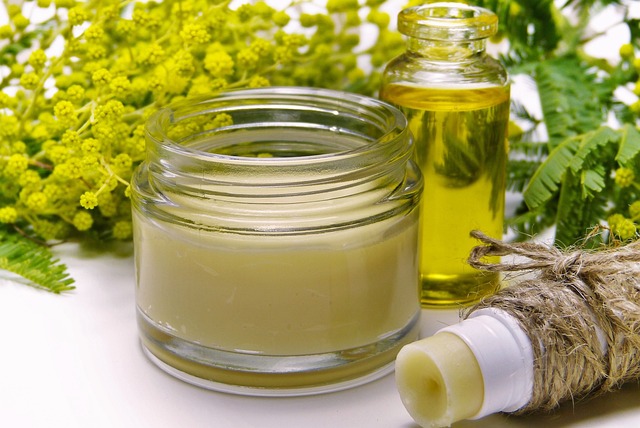Skin tags, known as acrochordons, are benign skin growths common on areas of the body experiencing friction. While generally harmless, they can cause discomfort or cosmetic concerns for some individuals. Leeds Tag Removal offers specialized services in Leeds for safe and effective removal of these tags through methods like cryotherapy and electrosurgery, conducted by trained professionals to ensure quick and minimally invasive procedures tailored to individual needs. It's essential for patients to consult with healthcare providers before removal to assess their specific health situation. Residents of Leeds have convenient access to expert clinics for skin tag treatment. Maintaining a balanced diet and regular exercise can help prevent skin tag formation by supporting the immune system and promoting healthy skin. Natural home remedies like apple cider vinegar, tea tree oil, castor oil with baking soda, garlic, and banana peels are available as alternatives for those interested in non-surgical options, but it's crucial to perform a patch test and consult with healthcare providers before trying these methods, especially for sensitive areas. For individuals who find home remedies inadequate or for larger or multiple skin tags, dermatologists in Leeds recommend professional removal procedures that adhere to high safety and hygiene standards. Those with underlying health conditions should be particularly cautious and seek professional advice before attempting any form of removal.
Exploring natural remedies for skin tags offers a safe and accessible approach to managing these common benign growths. This article delves into the nature of skin tags, their formation triggers, and the impact of lifestyle on their development and management. We’ll examine the efficacy of home treatments like tea tree oil and apple cider vinegar as alternatives to conventional medical procedures, such as Leeds tag removal techniques. Additionally, we’ll provide professional insights on when it’s advisable to consult healthcare providers for skin tag concerns. Join us as we navigate the world of natural skincare solutions for a healthier, clearer complexion.
- Understanding Skin Tags: What Are They and Why Do They Form?
- The Role of Lifestyle Choices in Skin Tag Development and Management
- Natural Remedies for Skin Tags: Safe and Effective Alternatives to Medical Procedures
- Top Home Remedies for Skin Tag Treatment: From Tea Tree Oil to Apple Cider Vinegar
- Professional Insights on Leeds Tag Removal Techniques and When to Seek Medical Advice
Understanding Skin Tags: What Are They and Why Do They Form?

Skin tags, also known as acrochordons, are small, benign skin growths that resemble a piece of hanging skin on a stalk or peduncle. They commonly appear in areas where the skin experiences friction or rubbing, such as the neck, armpits, and groin. While the exact cause remains elusive, various factors including genetics, hormonal changes, and even obesity have been associated with their formation. Understanding the nature of skin tags is crucial for distinguishing them from other skin lesions that may require medical attention. Leeds Tag Removal, a specialized service based in Leeds, offers safe and effective removal options for those who wish to address these growths due to cosmetic concerns or discomfort. The procedure is typically quick and minimally invasive, conducted by trained professionals to ensure patient safety and satisfaction.
Furthermore, skin tags are often harmless and do not pose any health risks; however, their presence can sometimes cause irritation or discomfort, especially when they are located in areas that come into contact with clothing or jewelry. It’s common for individuals to seek removal services like those provided by Leeds Tag Removal to alleviate these issues. The decision to remove skin tags is a personal one and should be made after consulting with a healthcare professional. In Leeds, residents have access to reputable clinics that specialize in tag removal, offering various methods such as cryotherapy, electrocautery, or surgical snip, each tailored to the individual’s specific needs and circumstances. Understanding the nature of skin tags and the options available for their removal can empower individuals to make informed decisions about their skin health.
The Role of Lifestyle Choices in Skin Tag Development and Management

Adopting a health-conscious lifestyle can significantly influence skin tag development and management. Factors such as diet, weight management, and personal hygiene play pivotal roles in maintaining healthy skin, including preventing the formation of skin tags. A balanced diet rich in vitamins and minerals fortifies the immune system and improves overall skin health, potentially reducing the likelihood of skin tags. On the other hand, excess body weight can put pressure on skin folds, creating an environment conducive to skin tag growth. Therefore, maintaining a healthy weight through regular exercise and nutritious eating habits is beneficial for preventing and managing skin tags.
For those in Leeds considering safe and effective removal options, Leeds Tag Removal offers professional guidance and treatment. Their expertise ensures that individuals receive personalized care tailored to their specific needs. The clinic utilizes advanced techniques such as cryotherapy and electrosurgery, which are minimally invasive and have a lower risk of complications compared to surgical methods. By adhering to a healthy lifestyle and utilizing professional services like those provided by Leeds Tag Removal, individuals can effectively manage existing skin tags and reduce the chances of new ones forming.
Natural Remedies for Skin Tags: Safe and Effective Alternatives to Medical Procedures

When addressing skin tags, a common benign skin growth, individuals often seek safe and effective alternatives to medical procedures like Leeds tag removal. Natural remedies offer a gentle approach to managing these harmless protrusions. Apple cider vinegar, for instance, is a popular home treatment due to its acetic acid content, which can potentially cause the skin tag to fall off after repeated applications. Fenugreek paste is another natural option; its enzymes may help in gradually reducing the size of the skin tag when applied consistently. Tea tree oil, known for its antiseptic properties, can be diluted and dabbed on the skin tag to soften and remove it.
Another effective home remedy involves the use of a mixture of castor oil and baking soda. This combination can be applied to the skin tag and covered with a bandage. The reaction that occurs underneath the bandage may help to dry out the skin tag, making it easier to remove. Additionally, ingredients like garlic and banana peels have been reported to assist in the natural removal of skin tags due to their enzymes and acidic properties. It’s important for individuals to conduct a patch test before applying any remedy to ensure they do not have an adverse reaction. Consulting with a healthcare provider is always recommended, especially if the skin tag is in a sensitive area or if there is any uncertainty about the condition of the skin tag. For those considering professional Leeds tag removal, it’s beneficial to first explore these natural alternatives as a non-invasive means of addressing skin tags.
Top Home Remedies for Skin Tag Treatment: From Tea Tree Oil to Apple Cider Vinegar

When exploring natural remedies for skin tags, a common concern, individuals in Leeds and beyond often turn to home treatments that are both effective and safe. Among the plethora of options available, tea tree oil stands out due to its antiseptic properties, which can help in softening and shrinking skin tags when applied topically. Regular application, as per guidance from healthcare professionals or dermatological literature, can gradually lead to the reduction of these benign growths. Another household staple that’s gaining attention for skin tag removal is apple cider vinegar. Its acetic acid content is known to induce a controlled level of chemical peeling, which can cause the skin tag to fall off after repeated applications. It’s important to dilute the vinegar with water to prevent irritation and to follow safety precautions to avoid adverse effects. Both remedies require patience and consistency; results may vary based on individual skin conditions and the size of the skin tags. For those considering these natural alternatives to professional treatments like those offered by Leeds Tag Removal services, it’s crucial to approach such remedies with caution and to consult a healthcare provider before beginning any treatment at home.
Professional Insights on Leeds Tag Removal Techniques and When to Seek Medical Advice

When addressing skin tags, it’s crucial to approach the subject with a blend of home remedies and professional guidance. In Leeds and beyond, dermatologists often recommend natural alternatives as a first step for managing these benign growths. Natural remedies such as apple cider vinegar and tea tree oil have been reported to induce the fall-off of skin tags due to their antimicrobial properties. These treatments should be applied carefully, following proper safety precautions to avoid irritation or infection.
Professional insights on Leeds tag removal techniques are invaluable, as medical professionals can assess the individuality of each case and provide tailored advice. They may suggest more effective methods such as cryotherapy, electrocoagulation, or surgical excision if home remedies prove ineffective or if the skin tags are particularly large, numerous, or located in sensitive areas. Dermatologists can also ensure that the removal process is conducted hygienically and safely, minimizing the risk of complications. It’s always advisable to consult with a healthcare provider before attempting any new treatment, especially if the skin tag is on the face, neck, armpits, or groin, as these areas have sensitive lymph nodes. Additionally, individuals with compromised immune systems, diabetes, or cardiovascular conditions should seek professional advice prior to engaging in home removal techniques due to the increased risk of infection and complications.
In concluding our exploration of skin tags, it’s clear that these common benign growths can be managed through a combination of understanding their origins, adapting one’s lifestyle, and employing natural remedies. While options like Leeds Tag Removal offer precise treatment when necessary, many individuals prefer non-invasive, at-home methods such as tea tree oil or apple cider vinegar. These alternatives not only cater to personal preference but also align with the growing interest in natural health solutions. It’s important for anyone considering these remedies to consult with a healthcare professional before proceeding, particularly if symptoms persist or change. By approaching skin tag management with informed choices and a holistic mindset, individuals can effectively address this minor yet sometimes bothersome skin concern.
